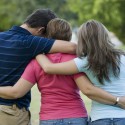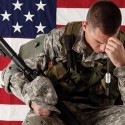No booze, less trash at beaches
It was a sight that stunned early-morning surfers and left environmentalists in disbelief.
For the first time in memory, San Diego-area beaches didn’t look like a dump the morning after Independence Day.
With alcohol banned at most county beaches this year, Fourth of July festivities were milder, family-friendly affairs up and down the coast. And for the most part, these sober partyers cleaned up after themselves.
More than 1,000 volunteers flocked to the shore to help in the annual July 5 beach cleanup Saturday. But many of them were left virtually empty-handed.
The typical bounty of booze bottles and beer cans was missing. But so were many other party leftovers. Absent from the beaches was the usual plethora of abandoned furniture, carpets and ice chests.
“I thought there was going to be way more trash. But I did find a SpongeBob baseball bat,” boasted 14-year-old Shannon Booth of Clairemont.
The do-gooders who participated in the Surfrider’s “Morning After Mess” scoured the shoreline at six local beaches – from Del Mar to Ocean Beach – carrying long-handled tongs and near-empty plastic bags. With beaches in decent shape, the crews were deployed to parking lots and nearby streets that attracted determined drinkers and partyers the night before.
All told, volunteers collected about 4,000 pounds of trash, more than 50 percent less than last year’s 9,000-pound hall. They also collected 28,000 cigarette butts, about 8,000 more than last year, with the increase due to the expanded cleanup zone.
“We usually have piles and piles of trash from the sea wall to the high-tide mark,” said Bill Hickman, coordinator of the Surfrider Foundation’s San Diego chapter. “This is amazing.”
Although July 4 is widely considered to be the trashiest day of the year for San Diego County beaches, efforts to curb litter have been steadily attacking the problem – even before the alcohol bans.
Environmental organizations, community groups and government agencies joined together as the San Diego Clean Beach Coalition to take on the cause. They distributed large bins for trash and recyclables at some of the area’s most popular beaches in anticipation of July 4 crowds, which are expected to linger throughout the weekend. The La Jolla Shores Surfing Association and the Pacific Beach Town Council also pitched in with cleanups.
San Diego outlawed alcohol on city beaches with a one-year trial ban that took effect in January. Other jurisdictions followed with similar ordinances, leaving Silver Strand State Beach near Coronado and the shores of Camp Pendleton as the only beaches in the area where alcohol is allowed.
Longtime Mission Beach resident Nancy Fairfield was among those who supported the beach alcohol bans. She said Saturday’s clean beach vindicated her position.
“Typically on July 5, I do not walk on the beach because I’m too disgusted by the trash,” said Fairfield, who strolled the beach Saturday with her two black Labrador retrievers. “I’m very impressed.”
Cloud Grove of Mission Hills couldn’t help but take his eyes off the waves to admire the unexpected state of Pacific Beach.
“I usually avoid the beach this time of year,” Grove said. “I’m happy to see this.”
City Councilman Kevin Faulconer, a leading advocate for clean-and-sober beaches, was beaming as he inspected the coastline.
“This is great to see from an environmental standpoint and from a neighborhood standpoint,” Faulconer said. “The beaches belong to everyone.”
__________
source: Union Tribune

